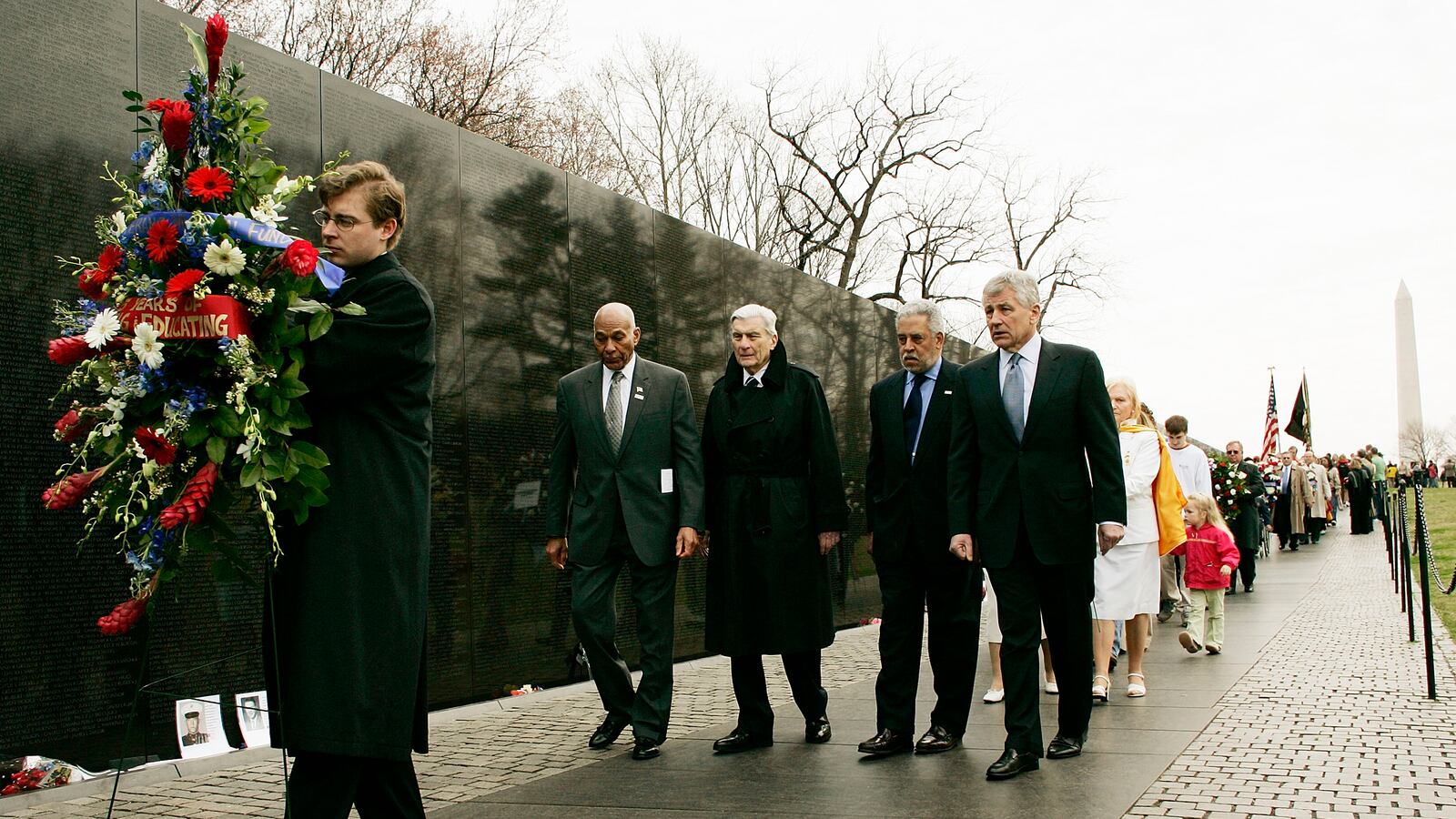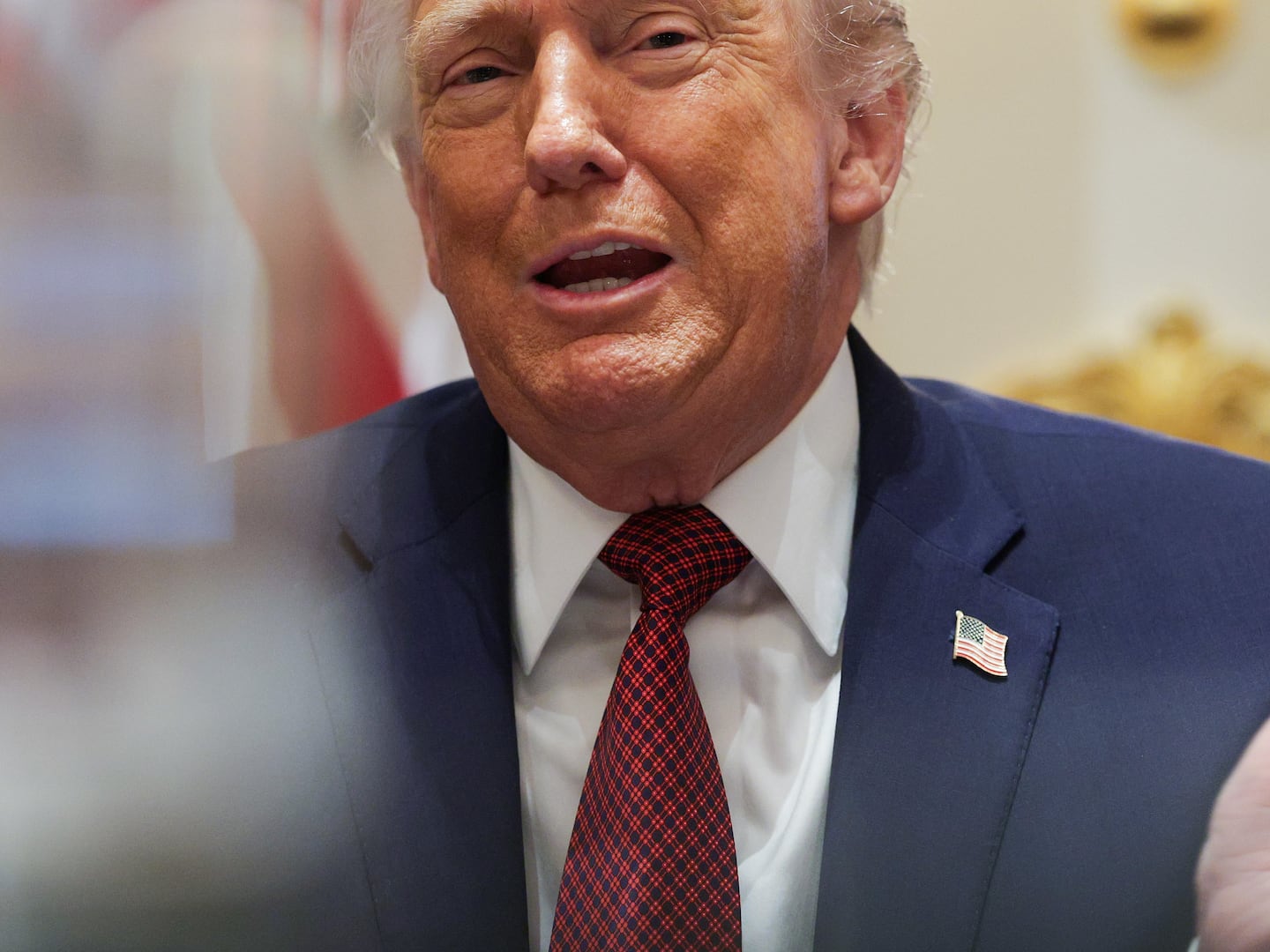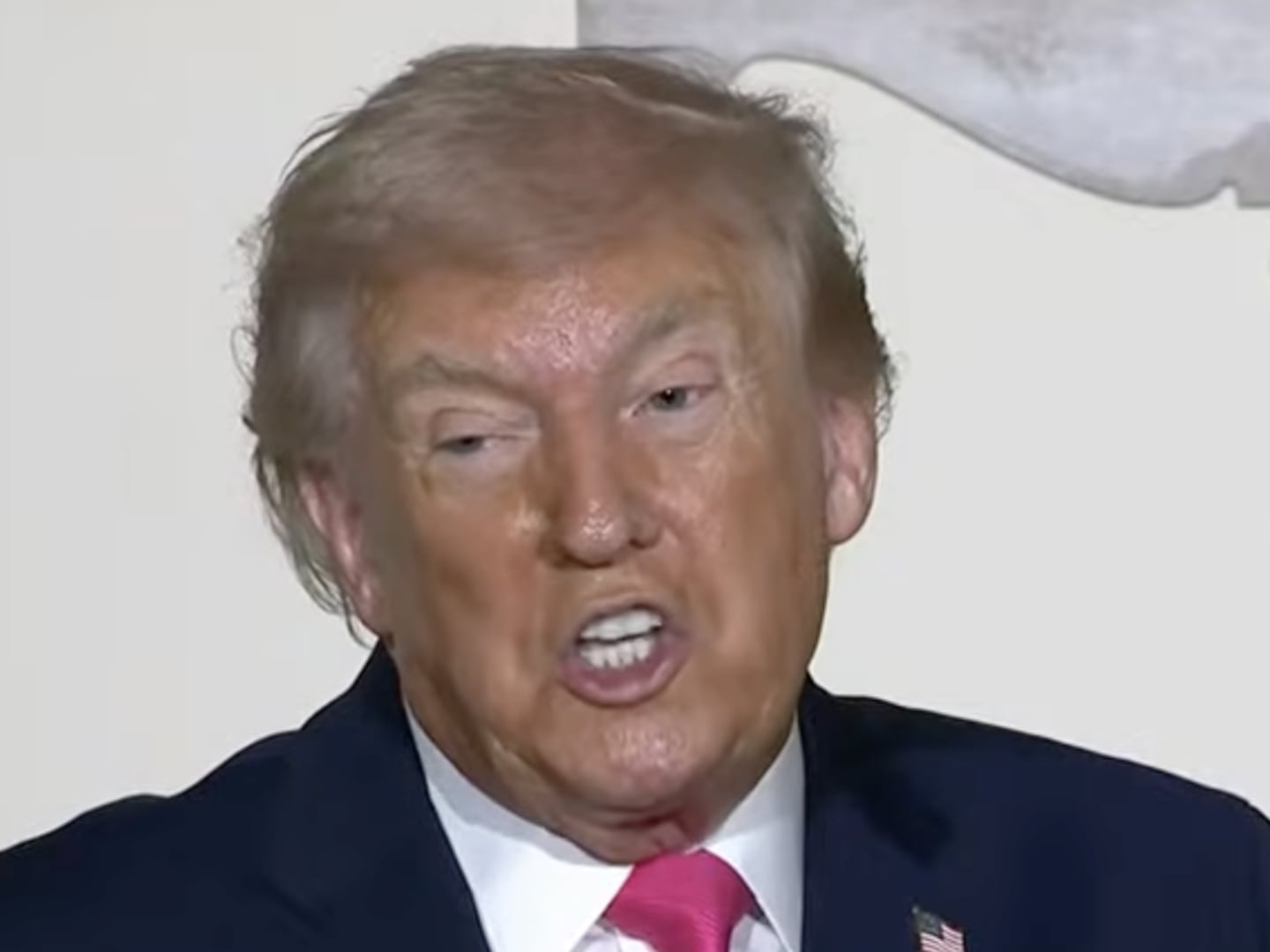As Democratic lawmakers push ahead with Chuck Hagel’s nomination, critics and supporters alike have emphasized both his veteran status—if confirmed, he will be the first former enlisted man and the first Vietnam veteran to serve —and his relatively dovish views on military force. His early opposition to the Iraq war, his opposition to the possible use of force against Iran, and especially his reluctance to intervene militarily on missions that have a humanitarian or nation-building dimension to them have all been cited by both his proponents and his opponents as reasons either to confirm him or to deny him.

One point on which the boosters and critics seem to agree is that it’s unusual and distinctive for a military veteran to be dovish on the use of force. But that’s a mistake: In fact, Senator Hagel’s views are more typical of military veterans and their active duty counterparts than the current confirmation debate seems to suggest.
Over a decade ago, we surveyed elite military, elite civilians, and the general population about their views on a wide range of foreign policy and national security issues. We wound one especially noteworthy pattern: Civilian elites were more supportive of using military force, and for a wider range of scenarios, than were military elites (defined as up and coming mid-range officers at key stages of their career). We asked, for instance, about the importance of using the military to “meet humanitarian needs abroad.” Civilian elites who had never served in the military were five times as likely as military elites to call this “very important.” To be sure, military elites still tended to rate such missions as “somewhat important,” but such differences in enthusiasm for humanitarian missions are significant when making difficult decisions about the use of force.
The views of veterans like Senator Hagel – who served in the enlisted ranks – generally fell somewhere in between the civilian elite non-veterans and military officers, but tended to be closer to their military counterparts.
We also asked our respondents whether force should be used incrementally, with constraints so as to minimize risks of escalation, or decisively, so as best to achieve total victory. Here the differences across the groups were more marked. Civilian elites who had never served were far more likely to favor constraints, whereas military officers and elite veterans supported decisive uses of force and higher levels of escalation.
Hagel’s views have not been uniformly typical of military veterans on this score, since he was a prominent opponent of the Iraq surge in 2007 and was publicly ambivalent if not skeptical about the Afghanistan surge in 2009. Hagel’s opposition to the surge in Iraq may have been more closely linked to his opposition to the Iraq war overall; although he initially supported the war, he quickly came to regret this support and his increasingly oppositional stance may have been more decisive than some general reluctance to use higher levels of force. Hagel’s stronger support for the war in Afghanistan, which began as an intervention closely linked to the traditional missions of homeland defense that military veterans typically support, may have contributed to his somewhat less oppositional stance to escalation there.
Combining these two attitudes – support for a limited set of military missions but a higher level of military force – yields the so-called Powell Doctrine of using force rarely but decisively. We found that military officers and elite veterans supported the Powell doctrine much more strongly than did civilian elites who had not served.
This opinion gap within American policy elites also corresponds with actual American uses of military force over the past two hundred years. We examined all international disputes involving the United States from 1816 to 1992 and found a striking pattern: The more veterans in Congress and in the Cabinet, the less likely the United States was to initiate the use of force. But, if force was initiated, the more veterans in the political elite, the more likely the intervention was at a higher level of escalation. Of course, the veteran status of the political elite is only one cause of American military action among many. But we found these effects to be substantial even after accounting for the typical predictors of military conflict.
It is important to recognize that the “veteran effect” is a general pattern, and there are exceptions to the military “types” on both sides. For example, Hagel’s most prominent critic, Senator John McCain, is a well-known veteran who has advocated for military action in places like Syria. President Obama, on the other hand, has been reluctant to get involved in Syria despite his civilian non-veteran status. Moreover, we should emphasize that our analyses cannot answer the question of which group – civilians or the military – is right about the appropriate frequency and intensity of American military interventions.
What our research does suggest, however, is that Hagel is probably not out of step with the military he would lead should he be confirmed—at least when it comes to the question of when the United States should use military force (and perhaps also his opinion on how to use force) in the myriad of international crises that will surely continue to confront the Obama administration.
But that does not mean Hagel will fit comfortably with the military he will supervise in every respect. For example, Hagel’s view, reported by Bob Woodward, that “[t]he president has not had commander-in-chief control of the Pentagon since Bush senior was president,” would seem to place him sharply at odds with the views of senior military officers in the Pentagon. Our study found that 93% of elite military officers believe that “civilian control is absolutely safe and secure in the United States,” a view shared by while just 59% of civilian elites. In this respect, Hagel may be more typical of his civilian elite counterparts, and this controversial claim seems much more likely to draw him into conflict with his future subordinates than disagreements about when and how America should use military force.
Peter D. Feaver and Christopher Gelpi are the co-authors of Choosing your Battles: American Civil-Military Relations and the Use of Force.






